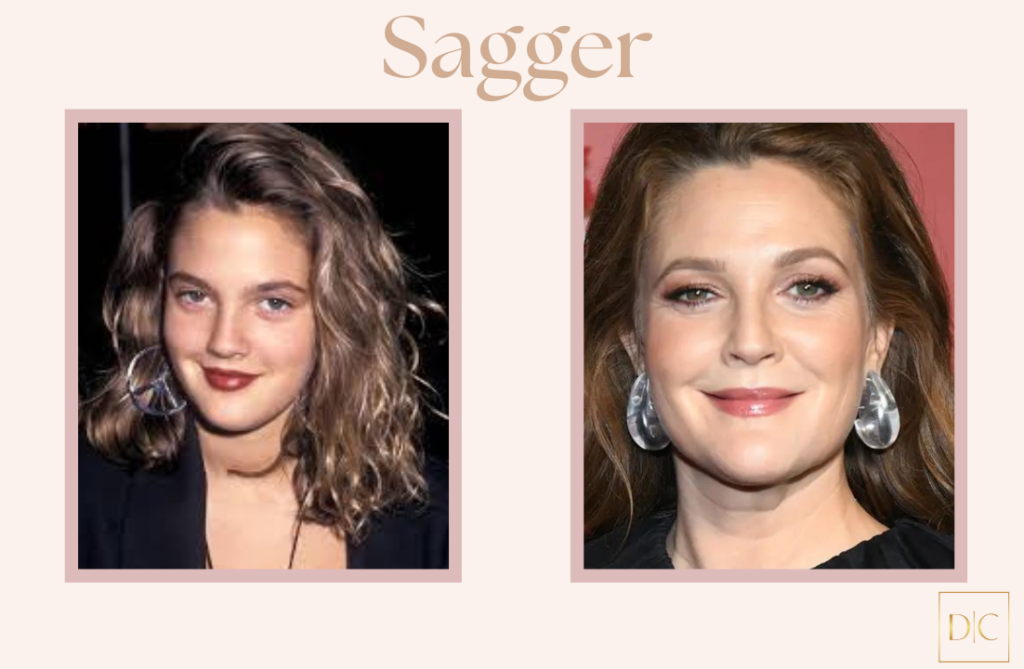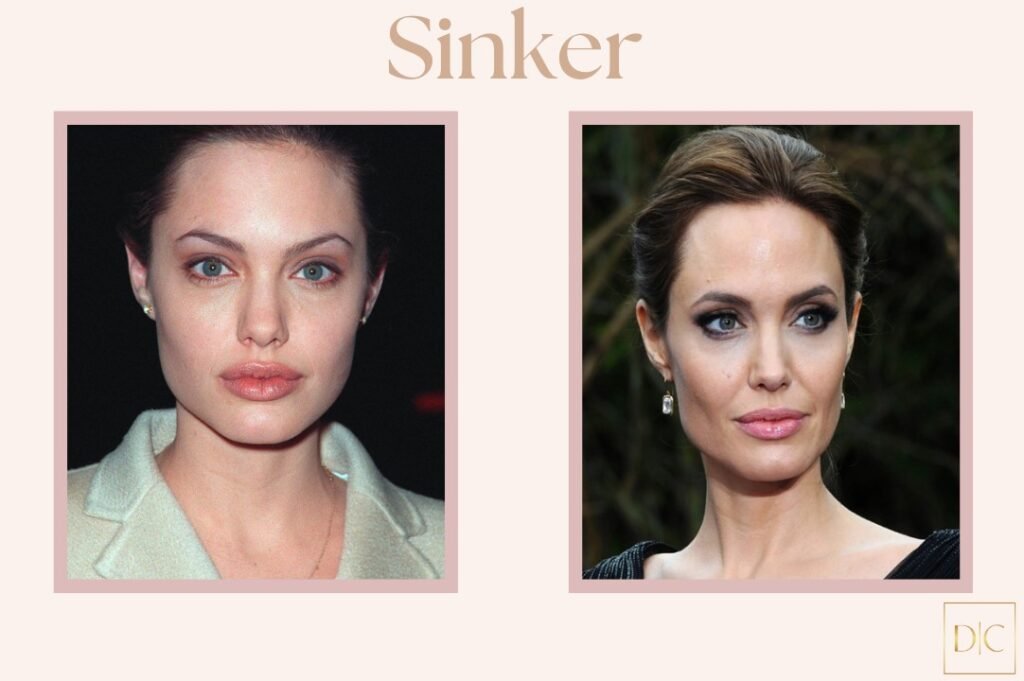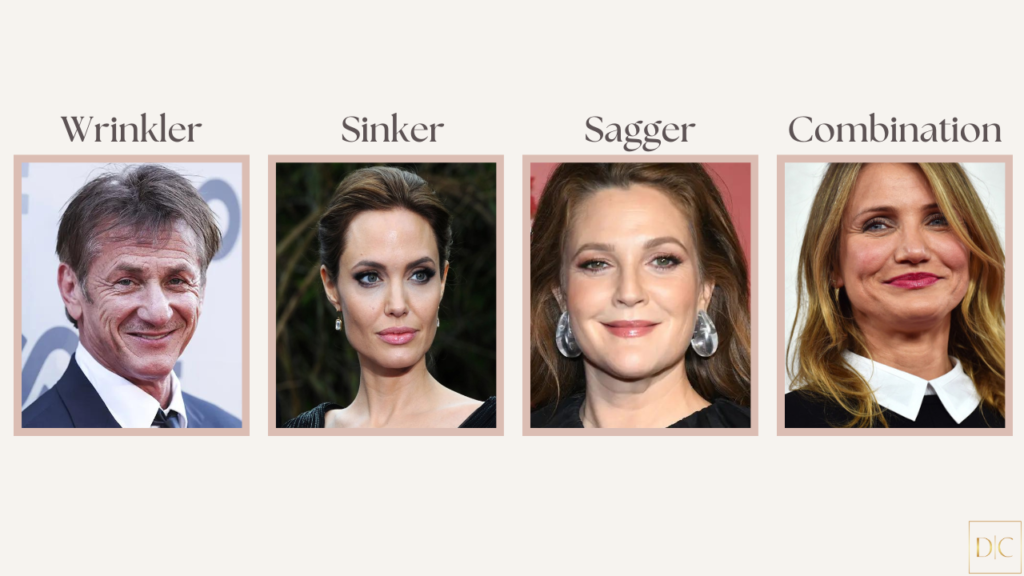Understanding your aging type is essential to comprehend how your face will change and which aesthetic treatments are most suitable for you. Whether you are dealing with wrinkles, sagging, or volume loss, modern aesthetic medicine offers a wide range of both non-surgical and surgical options to address these changes. Around your forties, it often becomes clear what aging type you have, but certain signs may indicate this earlier. This blog post guides you through the different aging types and helps you find the best treatment for your unique situation.
VIDEO:
Wrinklers
Wrinklers are characterized by a prominent presence of wrinkles and lines on the face, which remain visible even when the face is relaxed. These wrinkles are often most pronounced around the mouth, eyes, and forehead. It is not uncommon for individuals with this type of aging to have ‘smoker’s lines’, even if they do not smoke.
Factors such as an expressive face, excessive sun exposure, smoking, and skin dehydration can contribute to this phenomenon.

Prevention and treatment:
To minimize the effects of this aging type, it is advised to limit sun exposure, wear summer hats and SPF cream, avoid smoking, and hydrate the skin well daily. The use of muscle relaxants can also be beneficial for people who fall under this aging type.
Saggers vs Sinkers
What is the difference and how to recognize or predict?
Saggers and sinkers are the two most common aging types. Saggers lose skin elasticity, causing their skin to sag. Sinkers, on the other hand, lose fat beneath the skin, leading to hollowed areas on the face.
To determine which category someone might belong to, you can first look at how their parents age, as genetics play a significant role. Additionally, the thickness of the skin and the underlying soft tissue can also provide indications. A fuller face with a lot of soft tissue suggests a ‘sagger’, while a tighter, well-defined face with visible bone structures indicates a ‘sinker’.
A practical example of this are the sisters Bella and Gigi Hadid.

Bella, with her well-defined face and clear bone structure, is likely to become a ‘sinker’ in the future. Gigi, having a fuller face due to more underlying soft tissue, tends more towards being a ‘sagger’. Although they are still young, their current facial structure already provides some prediction about their future aging process.
Saggers
Saggers are characterized by initially thick skin and underlying soft tissue, but as they lose collagen, elastin, and fat pads, the skin begins to sag, particularly towards the lower part of the face. This results in a more squared facial shape, the development of jowls, and deepening of the nasolabial folds. The face shifts from a youthful V-shape to an inverted V, a change that is especially noticeable in saggers. As the skin loses support, it becomes looser, often described as ‘slipping away’ from the underlying framework.

Treatment:
Although saggers do not lose a significant amount of volume, adding fillers to the upper part of the face can help lift the lower part, where the volume tends to descend. This partially restores the original volume.
A thread lift, a non-surgical treatment involving dissolvable threads placed under the skin to lift and tighten it, is ideal for saggers who are not yet ready for a surgical facelift or wish to delay it. Ultimately, saggers are often ideal candidates for a surgical facelift as a more definitive solution.
Sinkers
Sinkers differ from saggers in that they do not primarily experience sagging skin, but rather significant facial volume loss, leading to a sunken and hollow appearance. This type of aging typically manifests as volume loss in specific areas such as the temples, beneath the cheekbones, and around the eyes. Due to this volume loss, other facial features like the eye sockets, cheekbones, and even the nose may appear more prominent. As we age, the nose may also seem larger, particularly because the tip of the nose tilts downward due to gravity, which is further accentuated by the loss of facial volume.

Treatment: For sinkers, fillers are often an effective treatment because they can precisely restore lost volume, helping to regain a more natural and youthful appearance. Unlike saggers, sinkers are generally not ideal candidates for surgical facelifts, as such procedures can produce unnatural results in them. The use of fillers provides a less invasive alternative that better suits the specific needs of this aging type.
Combination
Some individuals exhibit a combination of aging types, experiencing both sinking and sagging of the skin. Cameron Diaz provides a striking example of this.

On the far left, you have an example from when she was in her twenties, and in the middle, a photo from when she was 40. If we take a look at her face, we can see that it begins to sag around the eyes, and even in the lower part of the face. Then, on the far right, when she was about 50, we can visually see that the area around the eyes is sinking. Her nose also looks larger and more prominent. You can also see that she is starting to appear heavier in the lower face due to some accumulation of loose skin and fat.

Conclusion
Understanding your own aging type is crucial for recognizing how your face will change over the years and which aesthetic treatments can be most effective. Whether you display characteristics of ‘wrinklers’, ‘saggers’, ‘sinkers’, or a combination of these types, modern aesthetic medicine offers extensive possibilities. At Doctor Contour Clinic, led by aesthetic physician Dr. Kim Detollenaere, we provide specialized treatments for each aging type. These treatments include both surgical and non-surgical options, aimed at slowing down and even improving the natural aging process. By choosing the right approach early, you can not only maintain your appearance but also boost your confidence as the years pass.

